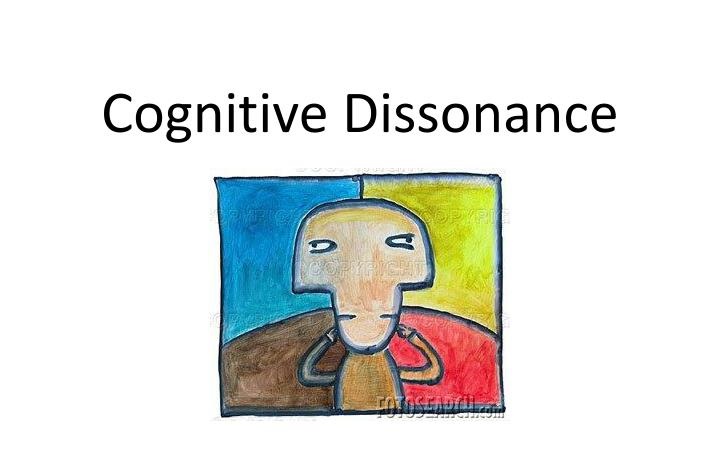
Cognitive dissonance is a term for the state of discomfort felt when two or more modes of thought contradict each other. The clashing cognitions may include ideas, beliefs, or the knowledge that one has behaved in a certain way.
The Theory of Cognitive Dissonance

The theory of cognitive dissonance proposes that people are averse to inconsistencies within their own minds. It offers one explanation for why people sometimes make an effort to adjust their thinking when their own thoughts, words, or behaviors seem to clash with each other.
When one learns new information that challenges a deeply held belief, for example, or acts in a way that seems to undercut a favorable self-image, that person may feel motivated to somehow resolve the negative feeling that results—to restore cognitive consonance. Though a person may not always resolve cognitive dissonance, the response to it may range from ignoring the source of it to changing one’s beliefs or behavior to eliminate the conflict.
What is cognitive dissonance?
Who created the concept of cognitive dissonance?
Is cognitive dissonance the same as hypocrisy?
How common is cognitive dissonance?
How We Deal With Cognitive Dissonance

Cognitive dissonance poses a challenge: How can we resolve the uncomfortable feeling that arises when our own thoughts or actions clash with each other? Some responses may be more constructive than others.
A man who learns that his eating habits raise his risk of illness feels the tension between his preferred behavior and the idea that he could be in danger. He might ease this feeling by telling himself that the health warning is exaggerated or, more productively, by deciding to take action to change his behavior. If a woman reads that her favorite politician has done something immoral, she could conclude that the charges have been invented by his enemies—or, instead, rethink her support.




